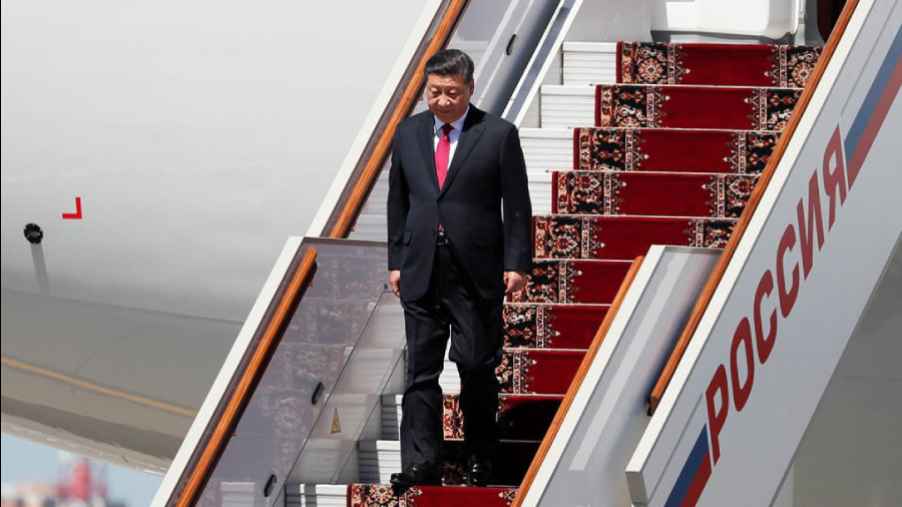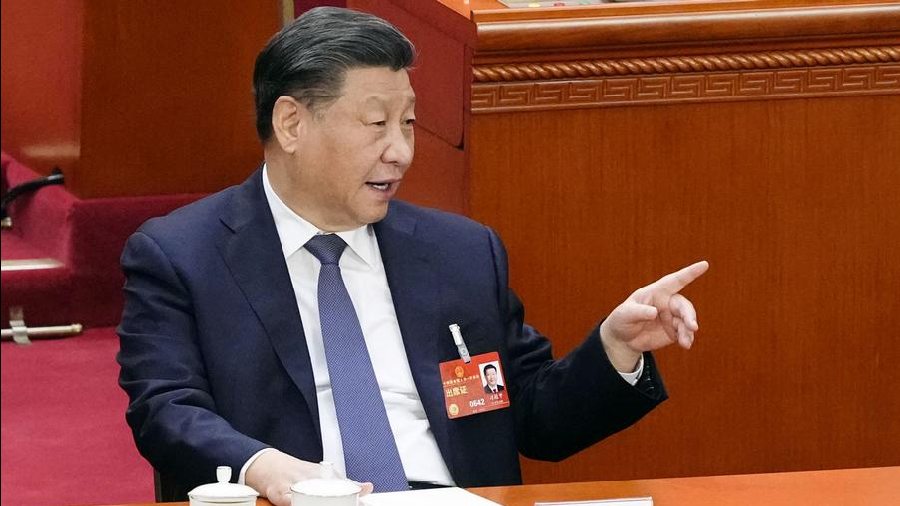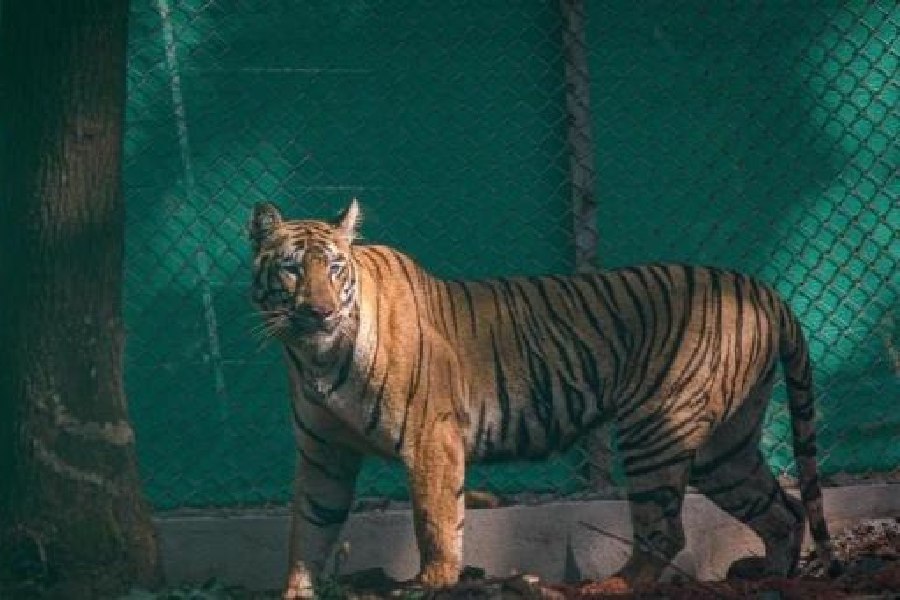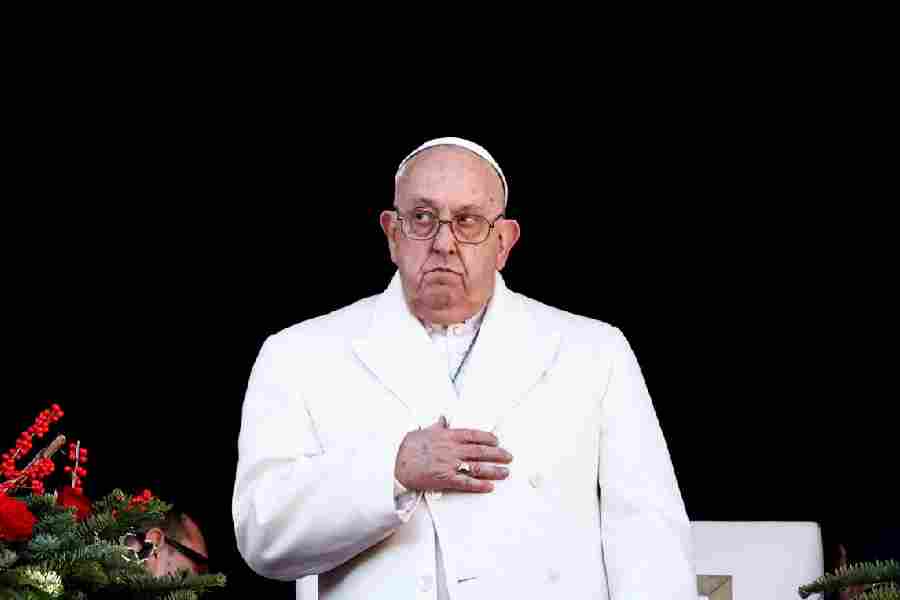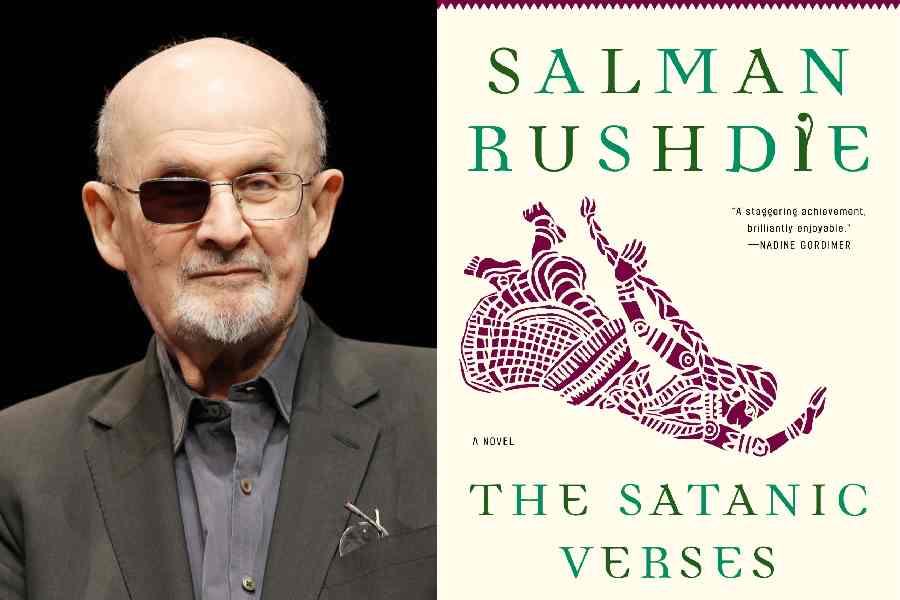Chinese President Xi Jinping and his Russian counterpart and ally Vladimir Putin held crucial talks in Moscow on Monday amid concerted efforts by China to push for a peace deal to end the Ukraine war, weeks after Beijing successfully brokered a pact between Iran and Saudi Arabia to end their bitter rivalry.
Xi and Putin, who met over 40 times in the last 10 years to forge close ties to oppose the US-dominated world order, held talks hours after the Chinese leader arrived in Moscow for a three-day state visit to a "grand welcome", official media on both sides reported.
Kremlin aide Yury Ushakov told the media that Presidents Xi and Putin will hold face-to-face talks followed by their delegations later. They will continue their talks on Tuesday too, according to Russian official media.
Ushakov said the visit would be strictly a business visit, "there will be no additional protocol stuff, the main thing is negotiations, negotiations and negotiations." In his arrival statement, Xi said, "Our two countries have consolidated and grown the bilateral relationship on the basis of no-alliance, no-confrontation and not targeting any third party, and set a fine example for developing a new model of major-country relations”.
He said China will continue to work with Russia to safeguard the international system with the UN at its core, the international order underpinned by international law, and the basic norms of international relations based on the purposes and principles of the UN Charter.
President Putin said that Moscow has studied Beijing’s proposals for resolving the conflict in Ukraine and that he will discuss it at a meeting with President Xi, state-run Tass news agency reported.
"We have thoroughly studied your proposals for resolving the acute crisis in Ukraine," Putin said, addressing the Chinese leader at a meeting on Monday. "Of course, we will have an opportunity to discuss this," he stressed.
"We know that you proceed from the principles of justice and observance of the fundamental provisions of international law and indivisible security for all countries," Putin said, noting that China was taking a “fair and balanced position on most pressing international problems.” Putin stressed Russia’s openness to negotiations. "Of course, we will discuss all these issues, including your initiatives, which we treat with respect, of course," he said.
Significantly, as Xi arrived in Moscow becoming the first world leader to meet Putin after the International Criminal Court (ICC) issued an arrest warrant against the Russian leader accusing him of committing war crimes in Ukraine, Beijing strongly criticised the Court accusing it of double standards.
The ICC should uphold an objective stance, respect the immunity of heads of state from jurisdiction under international law, exercise its functions and powers prudently in accordance with the law, and avoid politicisation and double standards, Chinese Foreign Ministry spokesman Wang Wenbin told the media in Beijing.
While there is no imminent danger of Putin being arrested by the ICC, its warrant was seen as a serious image crisis for him as 123 countries are members of the Court.
Ahead of his crucial talks with Putin which were expected to focus on beefing up Beijing-Moscow close and strategic ties, Xi on Monday spoke of his peace plan to end the raging Ukraine war.
Xi said his plan takes into account the "legitimate" concerns of all parties and reflects the broadest common understanding of the international community.
"Russia was the first country I visited after I was elected President 10 years ago," Xi said in an article titled "Forging Ahead to Open a New Chapter of China-Russia Friendship, Cooperation and Common Development" published in Russia's state-run newspaper Russian Gazette on Monday.
Xi, 69, who maintained close ties with Putin during his 10-year tenure stitching together with him an anti-US alliance, said he visited Moscow eight times in the last 10 years and met the Russian leader over 40 times during bilateral and multilateral occasions.
While the thrust of his article was on further developing the strategic ties against the damaging acts of hegemony, domination and bullying, an apparent dig at the US, it also highlighted Xi's peace plan to end the Ukraine war.
Buoyed by China's successful mediatory role in bringing a peace deal between arch-rivals Iran and Saudi Arabia recently following which the two warring Arab countries agreed to resume diplomatic ties, Xi now focuses on brokering a deal to end the Russia-Ukraine war in a bid to enhance Beijing's role in global diplomacy.
"I have put forth several proposals, i.e., observing the purposes and principles of the UN Charter, respect of the legitimate security concerns of all countries, supporting all efforts conducive to the peaceful settlement of the crisis, and ensuring the stability of global industrial and supply chains," Xi said in his article.
They have become China's fundamental principles for addressing the Ukraine crisis, he said, adding that his peace plan takes into account the legitimate concerns of all parties and reflects the broadest common understanding of the international community on the crisis.
It has been constructive in mitigating the spillovers of the crisis and facilitating its political settlement. There is no simple solution to a complex issue, he said.
Putin too published an article in the Chinese Communist Party mouthpiece, the People's Daily on Monday, saying that Xi’s visit will "give a new powerful impetus" to bilateral cooperation in its entirety.
The visit reaffirms the "special nature" of the Russia-China partnership, which has always been built on mutual trust, and respect for each other's sovereignty and interests as the two countries enjoy an “unprecedented level of trust”.
Ahead of Xi's visit, Chinese Foreign Minister Qing Gang spoke over the phone with his Ukrainian counterpart Dmytro Kuleba during which he called for peace talks between Moscow and Kyiv.
Xi is also expected to speak to Ukraine President Volodymyr Zelenskyy to push for his peace plan though there is a great deal of scepticism in Beijing about the chances of success for China's plan considering Ukraine is closely aligned with the US and EU without whose consent it cannot reach a peace deal with Russia, especially after enormous damage it suffered due to the Russian offensive.
In the 12-point paper highlighting its stand on the Ukraine conflict issued last month, China has called for a ceasefire followed by peace talks to end the Ukraine war. It, however, struck a nuanced stand of respecting Ukraine's sovereignty and legitimate security concerns of Moscow and expressed its firm opposition to the use of nuclear weapons.
Beijing so far has not condemned the Russian invasion of Ukraine and continues to maintain close political, trade, and military ties with Moscow.
Significant points of China's stand in its position paper were a call for ceasing hostilities and global support for the resumption of direct peace talks between Russia and Ukraine to end the war, respect for Ukraine's sovereignty and Moscow's legitimate security concerns and Beijing's opposition to threat or use of nuclear and biological weapons.
On the significance of Xi’s Ukraine peace plan, Einar Tangen, an American commentator based in Beijing, said Beijing is concerned about the ongoing deadlock in Ukraine and the lack of progress towards a diplomatic peace process.
"The prospect of a military victory option is not viable. If Russia is victorious, it would face a hostile civilian body in Ukraine’s western regions that would drain its resources and be a daily refrain for criticisms of Moscow," Tangen told PTI.
A Ukrainian victory would run the risk of a nuclear response that could escalate into the unthinkable, he said.
Except for the headline, this story has not been edited by The Telegraph Online staff and has been published from a syndicated feed.

